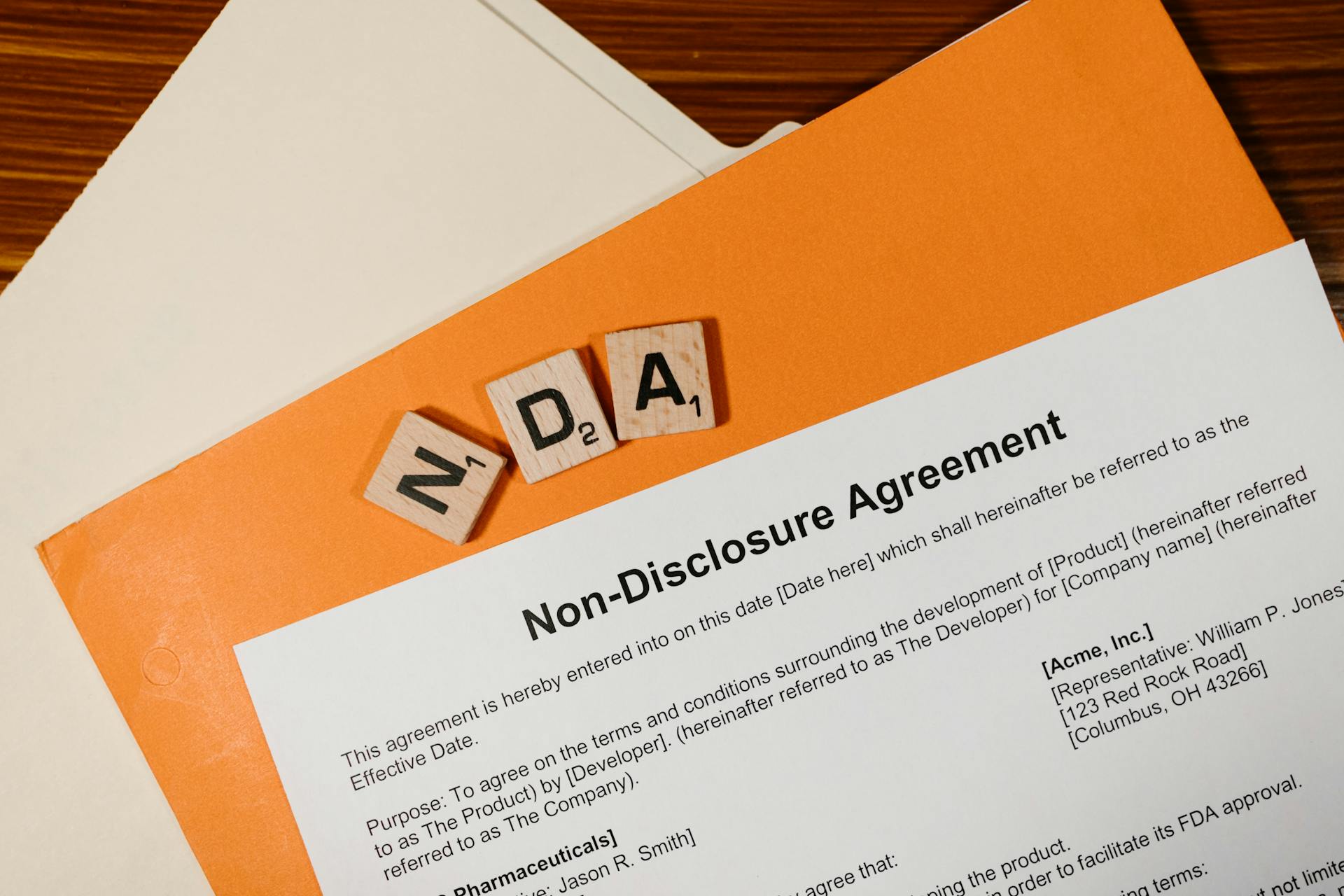
To comply with HIPAA reporting requirements, covered entities must submit breach reports to the Office for Civil Rights (OCR) within 60 days of discovery. This includes breaches involving unsecured protected health information (PHI).
HIPAA regulations require covered entities to maintain accurate and up-to-date records of PHI disclosures, including the date, type of disclosure, and recipient's name and address. This documentation is crucial in the event of a breach or audit.
Covered entities must also implement policies and procedures to ensure the confidentiality, integrity, and availability of PHI, including regular training for workforce members.
Reporting a Violation Can Be Difficult
Reporting a violation can be difficult, but it's a crucial step in upholding patient trust and maintaining compliance. Most HIPAA violations are caused by a misunderstanding of the law or a mistake made by an employee.
Properly reporting violations ensures that the issue gets resolved in a timely manner. You can report a HIPAA violation to the Office for Civil Rights (OCR) directly, or through the covered entity.
For more insights, see: What Can You Do to Prevent Hipaa Violations

To report a violation, you'll need to file a complaint with the OCR. You can do this online, via fax, mail, or email. You'll need to provide details about the covered entity, the date of the violation, and the address where it occurred.
It's essential to report a violation within 180 days of becoming aware of it. However, there may be exceptions to this timeline if you can prove that the delay was justified.
If you're unsure about how to report a violation, you can start by identifying the signs of a violation. This might include unauthorized personnel accessing patient records or unsecured patient data on shared networks.
Check this out: Hipaa Need to Know Rule
Employee and Data Security
Employee indiscretion is a common way HIPAA regulations are violated. This can include situations where information is improperly disclosed to third parties or employees not being properly trained on how to handle confidential information.
Even a scenario where two employees discussing a patient's medical condition are overheard by another person is considered a violation of HIPAA regulations.
Additional reading: Who Is Responsible for Implementing and Monitoring the Hipaa Regulations
Employee Indiscretion

Employee Indiscretion is a significant threat to data security. It's one of the most common ways HIPAA regulations are violated.
Improperly disclosing information to third parties is a major concern. This can include sharing patient information with family members or friends.
Even a casual conversation between employees can lead to a violation if they're overheard by someone else. This happened in a scenario where two employees discussing a patient's medical condition were overheard by another person.
Employees need to be properly trained on how to handle confidential information. This includes understanding what constitutes a breach and how to report it.
Not following proper protocols can have serious consequences, including fines and reputational damage.
Take a look at this: Are Invoices Considered Private Information Hipaa
Unsecured Data
Encryption is a crucial layer of security that can save you from a world of trouble in case your database is hacked or someone gets access to your files.
HIPAA's regulations don't directly require data encryption, but it's strongly recommended to prevent any future complications.
Encrypting data is a simple yet effective way to safeguard your digital information, especially in high-risk situations.
If this caught your attention, see: Data Security Issues That Must Be Addressed by Hipaa
Whistleblower Protections

Whistleblower Protections are in place to shield individuals who report HIPAA violations from adverse actions. This includes protection from being fired, demoted, or facing any form of workplace harassment.
Employees who, in good faith, report HIPAA violations are protected from retaliatory actions by their employers. This is a crucial safeguard to ensure that individuals feel comfortable coming forward to report violations.
The law explicitly prohibits retaliation against whistleblowers. Employers found guilty of retaliating can face legal consequences, including fines and potential lawsuits.
Here are some key rights of employees who report HIPAA violations:
- Protection from being fired
- Protection from being demoted
- Protection from workplace harassment
Properly reporting HIPAA violations will ensure that the issue gets resolved appropriately in a timely manner. Most HIPAA violations are either caused by a misunderstanding of the law or by a mistake that was made by an employee.
Whistleblower protections are designed to shield individuals who report violations from adverse actions, such as termination, harassment, or any form of discrimination. This is a critical component of HIPAA reporting.
For more insights, see: Examples of Unintentional Hipaa Violations
HIPAA Compliance

HIPAA Compliance is a critical aspect of healthcare data protection. Ensuring continuous compliance is crucial after reporting a HIPAA violation.
Regular audits can help identify potential areas of concern, so it's essential to conduct them regularly. This proactive approach can prevent future violations and maintain compliance.
Employee training is also vital, as it ensures all staff members are aware of HIPAA regulations and the importance of compliance. Regular training sessions can make a big difference in maintaining a culture of continuous compliance.
Partnering with experts like QIT Solutions can provide businesses with the tools and knowledge needed to maintain compliance. Their HIPAA MSP Selection Checklist is a valuable resource for businesses looking to bolster their compliance measures.
Here are some key steps to ensure continuous compliance:
- Regular audits
- Employee training
- Leveraging expertise
After a Violation
If an investigation is launched, you'll have to wait for the OCR to complete it. The OCR will review the complaint and determine if a HIPAA violation occurred.

The OCR will consider the reason for the complaint, the potential breach, and details about the covered entity or business associate. If a violation is found, the party responsible must correct their actions immediately and ensure future compliance with HIPAA regulations.
The party responsible may also be required to agree to compensate the affected parties through a reasonable settlement. If the organization doesn't comply with the OCR's requirements, the OCR may impose financial penalties.
Here are some potential consequences for HIPAA violators:
In some cases, the issue may be settled through voluntary compliance, technical guidance, or if the covered organisation or business associate agrees to implement corrective measures.
Introduction
In today's digital age, the protection of sensitive patient information is paramount. The Health Insurance Portability and Accountability Act (HIPAA) sets the standard for safeguarding medical data.
HIPAA compliance is not just about avoiding penalties, but also about ensuring the trust and safety of every patient whose data you handle. Every local business, especially small to medium-sized ones, plays a crucial role in upholding these standards.

At QIT Solutions, we understand the weight of this responsibility and aim to guide businesses through the intricacies of HIPAA compliance. We prioritize delivering tangible results over making grand promises.
Reporting HIPAA violations is a duty, and it's essential to know the process step by step. For those unfamiliar with the foundational principles of HIPAA, it's recommended to start with our article on Demystifying HIPAA's Three Rules.
Confidentiality and Disclosure
Protecting your identity and the information you provide is paramount during the reporting process. If you wish to remain anonymous, specify this when filing your complaint, but understand that complete anonymity might limit the investigation's effectiveness.
You have the right to request a limit on certain uses and releases of your health information. These requests must be in writing and submitted to our Privacy Department.
Incidental disclosures, such as conversations overheard between you and our team members at a facility, are unavoidable but we make reasonable efforts to avoid them.
Consider reading: Billing Information Is Protected under Hipaa

Here are some key points to keep in mind:
- Ensuring Anonymity: If you wish to remain anonymous, specify this when filing your complaint.
- Protecting Sensitive Information: Redact any unrelated personal data when submitting evidence or details.
- You have the right to request a limit on certain uses and releases of your health information.
- We make reasonable efforts to avoid incidental disclosures of your PHI.
You also have the right to see and get copies of your health information, in most cases. These requests must be in writing.
Incidental Disclosures
Incidental disclosures can happen, even in a secure environment. An example is conversations that may be overheard between you and our team members at a facility.
We take steps to prevent these kinds of incidents. We make reasonable efforts to avoid incidental disclosures of your PHI.
It's not always possible to completely eliminate the risk, but we do our best to minimize it.
Confidentiality
Confidentiality is a top priority in healthcare settings. You have the right to request a limit on certain uses and releases of your health information, but this request must be in writing and submitted to the Privacy Department.
You can also choose how you receive your health information, and you have the right to ask that we send information to you at an alternative address or by other means. For example, you can request that we send information to a post office box instead of your home address.
Related reading: How to Send Hipaa Compliant Email

If you want to see and get copies of your health information, you can submit a written request. You may request copies of your records from your provider, and if your records are maintained in an electronic format, you have the right to obtain an electronic copy of your records.
To protect your identity and the information you provide during the reporting process, you can specify your desire for anonymity when filing a complaint. However, it's essential to understand that complete anonymity might limit the investigation's effectiveness.
Incidental disclosures, such as conversations that may be overheard between you and our team members, are unavoidable. We make reasonable efforts to avoid such disclosures, but they can still occur.
Here are the rights you have regarding your health information:
- Request a limit on certain uses and releases of your health information
- Choose how you receive your health information
- See and get copies of your health information
- Request that we correct or update information that is incorrect or incomplete
- Receive a list of disclosures we have made
- Get a paper copy of this notice
Remember, protecting your identity and the information you provide is crucial during the reporting process.
Frequently Asked Questions
What happens when you make a HIPAA complaint?
When you file a HIPAA complaint, the Office for Civil Rights (OCR) launches an investigation into the alleged violation, which may result in a determination of liability
What are the requirements for a HIPAA notice?
A HIPAA notice must clearly explain how a health plan uses and discloses personal health information (PHI), the individual's rights, and the plan's legal duties. This notice must be written in plain language to ensure transparency and compliance.
Sources
- https://www.hipaaexams.com/blog/how-to-report-a-hipaa-violation-the-complete-guide
- https://www.compliancejunction.com/what-is-the-procedure-for-reporting-a-hipaa-violation/
- https://qitsolutions.com/a-step-by-step-guide-to-reporting-hipaa-violations/
- https://www.pa.gov/agencies/health.html
- https://baycare.org/hipaa
Featured Images: pexels.com

